 W
WA constructed language is a language whose phonology, grammar, and vocabulary, instead of having developed naturally, are consciously devised. Constructed languages may also be referred to as artificial languages, planned languages or invented languages and in some cases, fictional languages. Planned languages are languages that have been purposefully designed. They are the result of deliberate controlling intervention, thus of a form of language planning.
 W
W"Amambanda" was the Dutch entry in the Eurovision Song Contest 2006, performed predominantly in an imaginary language but with some words in English by Treble. This was the second occasion on which a song had been performed with lyrics in an invented language - Belgium having entered Sanomi by Urban Trad at the 2003 Contest.
 W
W"The Analytical Language of John Wilkins" is a short essay by Argentine writer Jorge Luis Borges originally published in Otras Inquisiciones (1937–1952). It is a critique of the English natural philosopher and writer John Wilkins's proposal for a universal language and of the representational capacity of language generally. In it, Borges imagines a bizarre and whimsical Chinese taxonomy later quoted by Michel Foucault, David Byrne, and others.
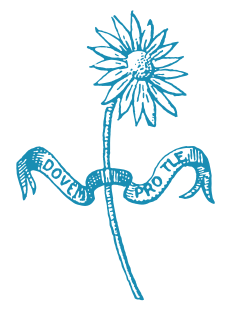 W
WBolak is a constructed language that was invented by Léon Bollack. The name of the language means both "blue language" and "ingenious creation" in the language itself.
 W
WThe Coelbren y Beirdd is a script created in the late eighteenth century by the literary forger Edward Williams, best known as Iolo Morganwg.
 W
WCommunicationssprache is one of the earliest international auxiliary languages.
 W
WConlanging: The Art of Crafting Tongues is a 2017 documentary film about conlanging – the hobby of constructing artificial languages and the people who make them. The film features conlangers David J. Peterson ; Marc Okrand and David Salo, as well as Paul Frommer, linguistics professor and creator of Na'vi, and Christine Schreyer, anthropologist at the University of British Columbia, who hopes to be able to apply conlanging methods to endangered languages. The film also looks at the history of the hobby and modern-day conlangers. While the film was made available for online purchase in 24 August, a premiere was held on 22 July at the University of Calgary's Plaza Theatre. Production began in 2015, and received funding from the Social Sciences and Humanities Research Council of Canada, but the film's future was secured through an Indiegogo campaign that raised $25,000 during August 2016. The Language Creation Society provided $3,000 worth of funds towards the film and held an interview with Watkins.
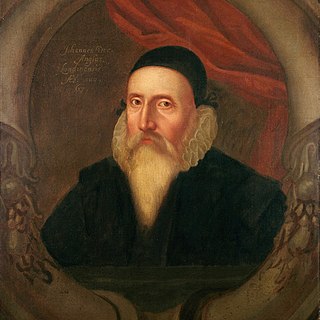 W
WEnochian is an occult language, claimed to be angelic, recorded in the private journals of John Dee and his colleague Edward Kelley in late 16th-century England. Kelley was a spirit medium who worked with Dee in his magical investigations. The men claimed that the language was revealed to them by the Enochian angels. The language is integral to the practice of Enochian magic. The syntax and grammar of the Enochian language are highly similar to the English language.
 W
WEskayan is an artificial auxiliary language of the Eskaya people of Bohol, an island province of the Philippines. It is grammatically Boholano, the native language of Bohol, with a substituted lexicon. While Eskayan has no mother-tongue speakers, it is taught by volunteers in at least three cultural schools in the southeast interior of the province.
 W
WEsperanto is the world's most widely spoken constructed international auxiliary language. It has gained speakers particularly in areas including Europe, East Asia, and Central and South America. Esperanto has also gained a noticeable presence on the internet in recent years. It was created by Polish ophthalmologist L. L. Zamenhof in 1887. Zamenhof first described the language in Dr. Esperanto's International Language, which he published in five languages under the pseudonym "Doktoro Esperanto". The word esperanto translates into English as "one who hopes"; Esperanto speakers are often called "Esperantists".
Glosa is an international auxiliary language based on a previous draft auxiliary called Interglossa. Glosa is an isolating language, which means that words never change form, and spelling is completely regular and phonetic.
 W
W"Heaven" is a song recorded by Romanian recording artist Inna, included on the deluxe edition of her fifth studio album Nirvana (2017). It was released for digital download on 10 June 2016 through Roton. The recording was written by Andreas Schuller, Leroy Clampitt, Sebastian Barac, Marcel Botezan, Laila Samulesen, Trey Campbell and Theea Eliza Miculescu, while production was handled by Barac and Botezan. A dance-pop and tropical house recording, the single was generally acclaimed by music critics, who praised it as an earworm with Middle Eastern influences. While reviews noted lyrics in English, French, and Spanish, the singer explained that the refrain was written in a language she invented with her label. At the 2017 Radio România Actualități Awards, "Heaven" was nominated in three categories.
 W
WIdo is a constructed language, derived from Reformed Esperanto, created to be a universal second language for speakers of diverse backgrounds. Ido was specifically designed to be grammatically, orthographically, and lexicographically regular, and above all easy to learn and use. In this sense, Ido is classified as a constructed international auxiliary language. It is the most successful of many Esperanto derivatives, called Esperantidoj.
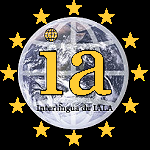 W
WInterlingua is an Italic international auxiliary language (IAL), developed between 1937 and 1951 by the International Auxiliary Language Association (IALA). It ranks among the top most widely used IALs, and is the most widely used naturalistic IAL – in other words, those IALs whose vocabulary, grammar and other characteristics are derived from natural languages, rather than being centrally planned. Interlingua was developed to combine a simple, mostly regular grammar with a vocabulary common to the widest possible range of western European languages, making it unusually easy to learn, at least for those whose native languages were sources of Interlingua's vocabulary and grammar. Conversely, it is used as a rapid introduction to many natural languages.
 W
WInterslavic is a zonal constructed language based on the Slavic languages. Its purpose is to facilitate communication between representatives of different Slavic nations, as well as to allow people who do not know any Slavic language to communicate with Slavs by being understandable to most, if not all Slavic speakers without them having to learn the language themselves. For Slavs it can fulfill an educational role as well.
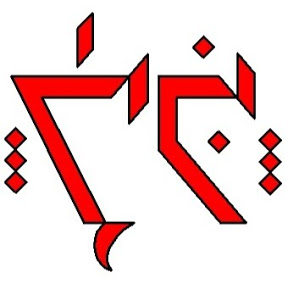 W
WIthkuil is an experimental constructed language created by John Quijada. It is designed to express deeper levels of human cognition briefly yet overtly and clearly, particularly with regard to human categorization. It is a cross between an a priori philosophical and a logical language. It tries to minimize the vagueness and semantic ambiguity found in natural human languages. Ithkuil is notable for its grammatical complexity and extensive phoneme inventory, the latter being simplified in an upcoming redesign. The name "Ithkuil" is an anglicized form of Iţkuîl, which in the original form roughly means "hypothetical representation of a language". Quijada states he did not create Ithkuil to be auxiliary or used in everyday conversations. He wanted the language to be used for more elaborate and profound fields where more insightful thoughts are expected, such as philosophy, arts, science and politics.
 W
WKotava is a proposed international auxiliary language (IAL) that focuses especially on the principle of cultural neutrality. The name means "the language of one and all", and the Kotava community has adopted the slogan "a project humanistic and universal, utopian and realistic". The language is mainly known in French-speaking countries and most material to learn it is in French.
 W
WThe Lexicon of Comicana is a 1980 book by the American cartoonist Mort Walker. It was intended as a tongue-in-cheek look at the devices used by cartoonists. In it, Walker invented an international set of symbols called symbolia after researching cartoons around the world. In 1964, Walker had written an article called "Let's Get Down to Grawlixes", a satirical piece for the National Cartoonists Society. He used terms such as grawlixes for his own amusement, but they soon began to catch on and acquired an unexpected validity. The Lexicon was written in response to this.
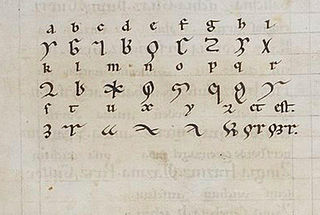 W
WA Lingua ignota was described by the 12th century abbess of Rupertsberg, St. Hildegard of Bingen, OSB, who apparently used it for mystical purposes. To write it, she used an alphabet of 23 letters denominated litterae ignotae.
 W
WLojban is a constructed, syntactically unambiguous human language created by the Logical Language Group. It succeeds the Loglan project.
 W
WNeo is an international auxiliary language created by Arturo Alfandari, a Belgian diplomat of Italian descent. It combines features of Esperanto, Ido, Novial, and Volapük. The root base of Neo is closely related to French, with some influence from English.
 W
WNovial is a constructed international auxiliary language (IAL) for universal communication between speakers of different native languages. It was devised by Otto Jespersen, a Danish linguist who had been involved in the Ido movement, and later in the development of Interlingua.
 W
W"O Julissi" also known as "O Julissi Na Jalini" is a song by the Belgian six-piece band Ishtar. The swing influenced song represented Belgium at the Eurovision Song Contest 2008 first semi-final in Belgrade, but missed out on qualification to the grand final.
 W
WInterlingue, known until 1949 as Occidental, is an international auxiliary language created by Edgar de Wahl, a Baltic German naval officer and teacher from Tallinn, Estonia, and published in 1922. The vocabulary is based on already existing words from various languages and a system of derivation using recognized prefixes and suffixes.
 W
WA pan-Romance language or Romance interlanguage is a codified linguistic variety which synthesizes the variation of the Romance languages and is representative of these as a whole. It can be seen as a standard language proposal for the whole language family but is generally considered a zonal constructed language because it's the result of intense codification. Zonal constructed languages are, according to interlinguist Detlev Blanke, constructed languages which "arise by choosing or mixing linguistic elements in a language group".
 W
WPasilingua is an international auxiliary language proposed by Paul Steiner, first published in Neuwied in 1885 in his book Three World Language Systems .
 W
WQuenya is one of the fictional languages devised by J. R. R. Tolkien and used by the Elves in his legendarium.
 W
W"Sanomi" is a song recorded by Belgian six-piece band Urban Trad. The song was written by Yves Barbieux. It is best known as the Belgian entry at the Eurovision Song Contest 2003, held in Riga.
 W
WSlovio is a constructed language begun in 1999 by Mark Hučko. Hučko claims that the language should be relatively easy for non-Slavs to learn as well, as an alternative to languages such as Esperanto which are based more on Latin root words.
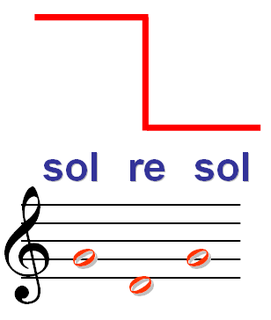 W
WSolresol, originally called Langue universelle and then Langue musicale universelle, is a constructed language devised by François Sudre, beginning in 1827. His major book on it, Langue Musicale Universelle, was published after his death in 1866, though he had already been publicizing it for some years. Solresol enjoyed a brief spell of popularity, reaching its pinnacle with Boleslas Gajewski's 1902 publication of Grammaire du Solresol.
 W
WSpeaking in tongues, also known as glossolalia, is a practice in which people utter words or speech-like sounds, often thought by believers to be languages unknown to the speaker. One definition used by linguists is the fluid vocalizing of speech-like syllables that lack any readily comprehended meaning, in some cases as part of religious practice in which some believe it to be a divine language unknown to the speaker. Glossolalia is practiced in Pentecostal and charismatic Christianity, as well as in other religions.
 W
WSpokil is a constructed language created by the Frenchman Adolphe Nicolas.
 W
WTalossa, officially the Kingdom of Talossa, is one of the earliest micronations — founded in 1979 by then 14-year-old Robert Ben Madison of Milwaukee and at first confined to his bedroom; he adopted the name after discovering that the word means "inside the house" in Finnish. Among the first such projects still maintained, it has kept up a web presence since 1995. Its internet and media exposure since the late 1990s contributed to the appearance of other subsequent internet micronations.
 W
WTalossa, officially the Kingdom of Talossa, is one of the earliest micronations — founded in 1979 by then 14-year-old Robert Ben Madison of Milwaukee and at first confined to his bedroom; he adopted the name after discovering that the word means "inside the house" in Finnish. Among the first such projects still maintained, it has kept up a web presence since 1995. Its internet and media exposure since the late 1990s contributed to the appearance of other subsequent internet micronations.
 W
WUropi is a constructed language which was created by Joël Landais, a French English teacher. Uropi is a synthesis of European languages, explicitly based on the common Indo-European roots and aims at being used as an international auxiliary language for Europe and thus contributing to building a European identity. Besides, given the spread of Indo-European languages outside Europe, it could be an international language for the world.
 W
WVolapük is a constructed language created between 1879 and 1880 by Johann Martin Schleyer, a Roman Catholic priest in Baden, Germany, who believed that God had told him in a dream to create an international language. Volapük conventions took place in 1884 (Friedrichshafen), 1887 (Munich) and 1889 (Paris). The first two conventions used German, and the last conference used only Volapük. In 1889, there were an estimated 283 clubs, 25 periodicals in or about Volapük, and 316 textbooks in 25 languages; at that time the language claimed nearly a million adherents. Volapük was largely displaced between late 19th and early 20th century by Esperanto.
 W
WYouth Without Youth is a 2007 fantasy drama film written, produced, and directed by Francis Ford Coppola, based on the novella of the same name by Romanian author Mircea Eliade. The film is a co-production between the United States, Romania, France, Italy and Germany. It was the first film that Coppola had directed in ten years, since 1997's The Rainmaker.